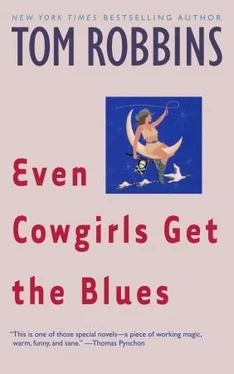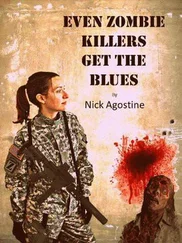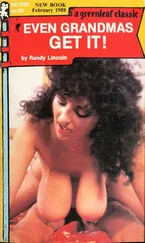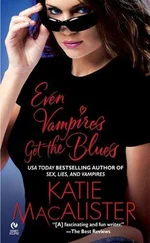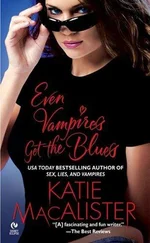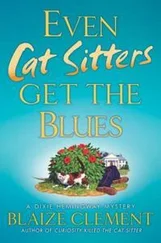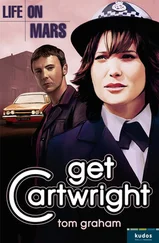A meeting had been called in the bunkhouse that Saturday morning, a meeting that all cowgirls except those watching the birds were expected to attend, and over which Jelly and Delores had to preside. If the chief cowgirls hadn't stopped off, independently, to unburden their bowels (a habit that should be practiced by all presiding officers before they take the floor) and gotten trapped by a cloudburst, the meeting would now be underway. As Rubber Rose meetings went, this one was not likely to be unusual. Mary would complain that some of the cowgirls had been sleeping two to a bunk again, in violation of the agreement that “crimes against nature” were to be confined to the hayloft. Debbie would say that she didn't care who lay with whom or where or how, but that the moaners, groaners and screamers ought to turn down their volume when others were trying to sleep or meditate (here and there a blush). Big Red would proffer an unsolicited testimonial as to the quality and quantity of Rubber Rose cuisine, a testimony in which each boiled potato, every dab of gravy, was described as smaller and less appetizing than the one before. And several of the cowgirls would voice their anxieties about the possible consequences of riding herd on the birds. But Jelly would pacify everyone, as usual, and by meeting's end there would be general smiling, hugging and expressions of solidarity. It promised to be a meeting with a familiar ring, but it had been called and therefore must be held. Jelly and Delores hadn't the right to delay it further just because it was raining Coke bottles and bananas. Let them take their soaking.
Bracing themselves for a tall drink of water, straight, no chaser, they were poised in the shithouse doorway when all at once they saw a barefoot cowgirl — Debbie it was — run across the yard in her karate robe, jump on the Exercycle that was rusting in the weeds and begin pumping the pedals furiously in the yammering rain. “My sacred crocodile!” exclaimed Delores. “She's flipped.”
But, ho, in a minute others followed Debbie, everyone of them, in fact; the entire bunkhouse load of them, some thirty young cowgirls, squealing, giggling, naked or near naked, all full of dimples and hormones. They slid and rolled on the wet grass, pushed each other into the mud that was forming by the corral fence, chased one another in and out of the thick folds of rain draperies, stamped their cute feet in puddles and did bellyflops into the overflowing horse trough. The downpour became a crystal chandelier, they its flickering candleflames.
Boss rancher and forewoman eyed each other in astonishment. The hands called to them. Jelly felt minnows flash in her bloodstream. She undressed quickly. More reluctantly, Delores stripped down to her viperskin underthings. Together they dashed into the warm rain.
The cowgirls frolicked until, as suddenly as it had come, the rain went away. Play ceased. The sun placed its horns in their dripping curls. They were panting like puppies as they leaned against one another or picked clods of mud from one another's hair.
“I move that the meeting be adjourned,” panted Elaine.
Debbie seconded the motion, and tacked on a Zen proverb: “At the end of the endless game, there is friendship.”
“What the heck did she mean by that!” asked Heather, who made use of the privy while Jelly gathered up her clothes.
Jelly studied the tired and sopping cowgirls walking arm and arm back to the bunkhouse. “Just that in Heaven all business is conducted this way,” she explained.
34.
WHILE BONANZA JELLYBEAN was cross-state in Fargo, closing the goat cheese deal, she stopped at a rummage sale and picked up a gang of old dresses and hats. The cowgirls were trying them on in front of the bunkhouse mirror. Kym mugged in a floppy pink chapeau that looked like a cross between a strawberry chiffon pie and a bloodhound. Using up her mirror time, Jody palpitated in a frilly green kimono. Delores inquired sullenly if there was anything in black. Elaine and Linda. .
Wait. Wait a moment, please. Even though we agree that time is relative; that most subjective notions of it are inaccurate just as most objective expressions of it are arbitrary; even though we may seek to extirpate ourselves from the terrible flow of it (to the extent of ignoring an author's plea to “wait a moment, please,” for a moment, after all, is a little lump of time); even though we pledge allegiance to the “here and now,” or view time as an empty box to fill with our genius, or restructure our concepts of it to conform with those wild tickings at the clockworks; even so, we have come to expect, for better or worse, some sort of chronological order in the books we read, for it is the function of literature to provide what life does not. In light of that, then, your author is calling “time out” to inform you that those events described in the opening chapters of Part III, as well as most of those reported in the various Cowgirl Interludes of Parts I and II, occurred after Sissy Hankshaw Gitche had come to the Rubber Rose and gone again.
Conditions at the ranch were a bit different when Sissy arrived for her modeling assignment back in September 1973. Ostensibly, Miss Adrian was still in charge then, the Rubber Rose still functioned as a beauty ranch and the number of cowgirls there was no more than fifteen. Drastic changes had been made, to be sure, in the Countess's original plans for the spread, but it was not the same configuration of appetites nor had it the same mood or significance as the place about which the author has been sporadically writing.
If he has confused you, the author apologizes. He swears to keep events in proper historical sequence from now on. He does not, however, disavow the impulses that led to his presentation of cowgirl scenes out of chronological order, not does he, in repentance, embrace the notion that literature should mirror reality (as the bunkhouse looking glass mirrored young cowgirls in old clothing, whatever the continuity). A book no more contains reality than a clock contains time. A book may measure so-called reality as a clock measures so-called time; a book may create an illusion of reality as a clock creates an illusion of time; a book may be real, just as a clock is real (both more real, perhaps, than those ideas to which they allude); but let's not kid ourselves — all a clock contains is wheels and springs and all a book contains is sentences.
Happily, your author is not under contract to any of the muses who supply the reputable writers, and thus he has access to a considerable variety of sentences to spread and stretch from margin to margin as he relates the stories of our Thumbelina, of the ranch a douche bag built and — O my children, cock your ears to this! — of the clockworks and its Chink. For example:
This sentence is made of lead (and a sentence of lead gives a reader an entirely different sensation from one made of magnesium). This sentence is made of yak wool. This sentence is made of sunlight and plums. This sentence is made of ice. This sentence is made from the blood of the poet. This sentence was made in Japan. This sentence glows in the dark. This sentence was born with a caul. This sentence has a crush on Norman Mailer. This sentence is a wino and doesn't care who knows it. Like many italic sentences, this one has Mafia connections . This sentence is a double Cancer with Pisces rising. This sentence lost its mind searching for the perfect paragraph. This sentence refuses to be diagramed. This sentence ran off with an adverb clause. This sentence is 100 percent organic: it will not retain a facsimile of freshness like those sentences of Homer, Shakespeare, Goethe et al., which are loaded with preservatives. This sentence leaks. This sentence doesn't look Jewish. . This sentence has accepted Jesus Christ as its personal savior. This sentence once spit in a book reviewer's eye. This sentence can do the funky chicken. This sentence has seen too much and forgotten too little. This sentence is called “Speedoo” but its real name is Mr. Earl. This sentence may be pregnant, it missed its period. This sentence suffered a split infinitive — and survived. If this sentence had been a snake you'd have bitten it. This sentence went to jail with Clifford Irving. This sentence went to Woodstock. And this little sentence went wee wee wee all the way home. This sentence is proud to be a part of the team here at Even Cowgirls Get the Blues . This sentence is rather confounded by the whole damn thing.
Читать дальше
